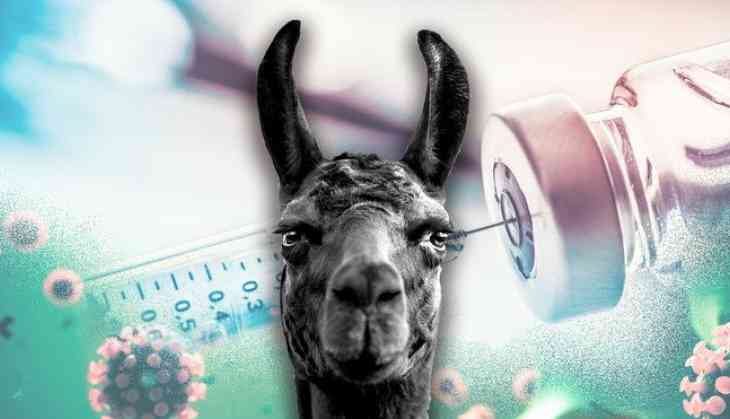
The global race to find an effective treatment for coronavirus has come to a unique standpoint -- a four-year-old llama, named Winter, whose antibodies are effective in neutralising those new viruses in lab experiments that cause COVID-19, according to a study.
Winter lives at a research farm in Belgium with about 130 other llamas and alpacas. Like all of them, she produces a special class of disease-fighting antibodies that help in binding the spiky proteins that stud the surface of the novel coronavirus, thereby neutralising its insidious effect, The Washington Post reported citing a paper published on Tuesday in the journal Cell.
The study, though preliminary, points to a possible treatment for COVID-19, the disease caused by the coronavirus, if the results hold up in animal and human studies.
Winter is a chocolate-coloured llama with spindly legs, ever-so-slightly askew ears and envy-inducing eyelashes. Her antibodies are a niche kind that is called nanobodies and are prized by researchers because of their ability to get into nooks and crannies, and because they are slow to degrade in the body, the experiments found.
Researchers from the University of Texas at Austin, the National Institutes of Health and Ghent University in Belgium are currently exposing laboratory mice to the coronavirus spike protein and studying the blood of people who have recovered from COVID-19 to identify traditional antibody drugs.
In 2016, researchers immunised Winter with spike proteins from MERS and SARS in a bid to develop a universal vaccine for human coronaviruses, four of which are common and cause cold-like symptoms.
They then drew her blood and isolated antibodies, one of which showed potential for neutralising MERS, and another of which neutralised SARS, said Daniel Wrapp, a co-author of the study and graduate student at the University of Texas at Austin.
"While the researchers were hoping to find a single antibody that could target all the coronaviruses, the 'consolation prize' was finding two that showed promise against MERS and SARS," Wrapp said.
If the small antibodies work in humans, their stability means they possibly could be delivered as treatment via an inhaler, he said, adding that larger monoclonal antibodies must be administered by injection.
Wayne Marasco, an infectious disease specialist at Dana-Farber Cancer Institute who developed experimental antibody therapies against close cousins of the current coronavirus, said he thinks the approach could be a "game-changer".
A single dose could potentially act to treat the disease or to prevent it for months. Last month, former Food and Drug Administration Commissioner Scott Gottlieb wrote in the Wall Street Journal that such drugs "may be the best chance for meaningful near-term success".
However, the antibodies inspired by Winter are still far from being tested in people. Belgian researchers are only now starting preclinical trials on hamsters.
Meanwhile, the US hospitals are harnessing naturally occurring antibodies to treat patients by providing experimental transfusions of blood plasma from COVID-19 survivors, hoping the plasma, rich with virus-fighting antibodies, can save lives.
With a widely available vaccine probably at least a year away, antibody therapies have become one of the most promising weapons, in the eyes of some experts, against COVID-19, which has killed more than 250,000 people worldwide.
-ANI
Also Read: Coronavirus: 20 more COVID-19 cases in Odisha, state's count reaches 205


